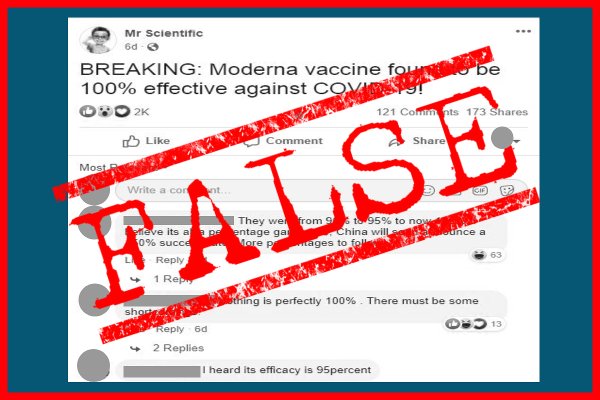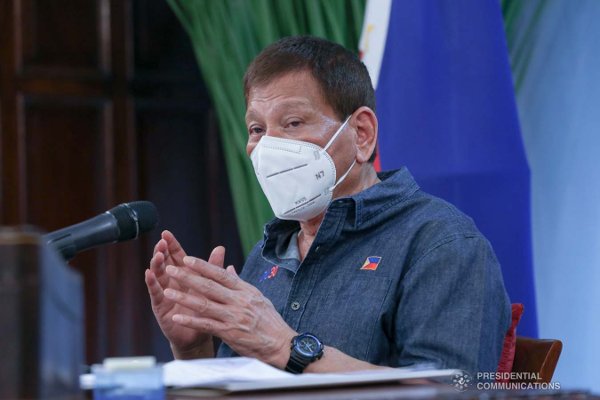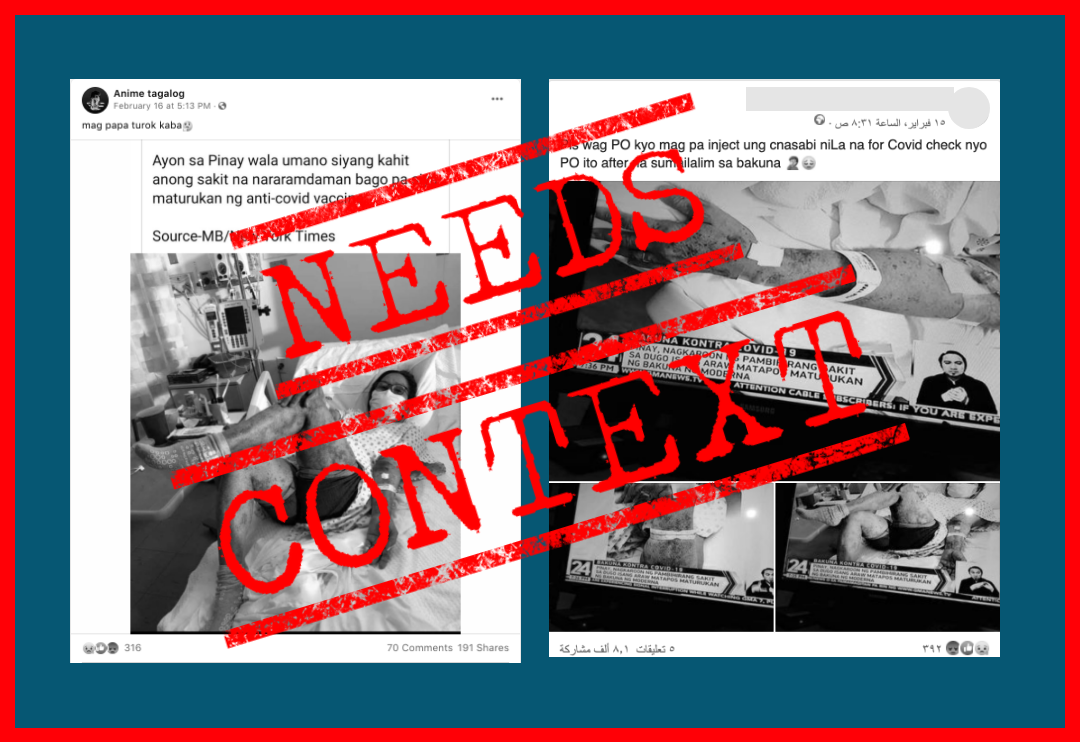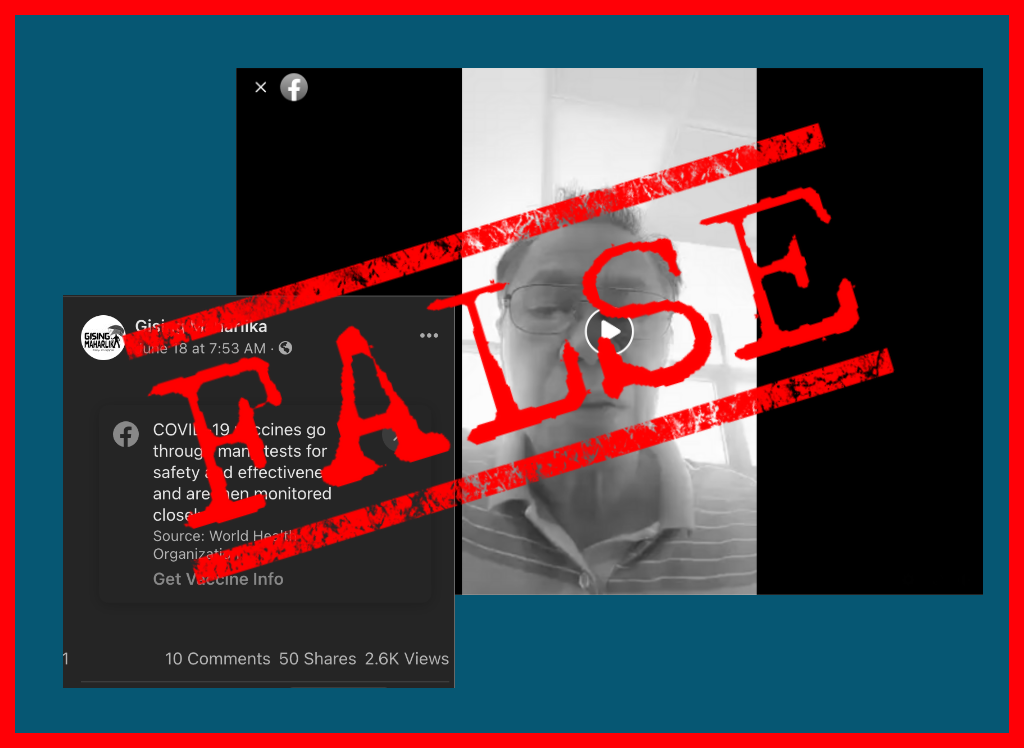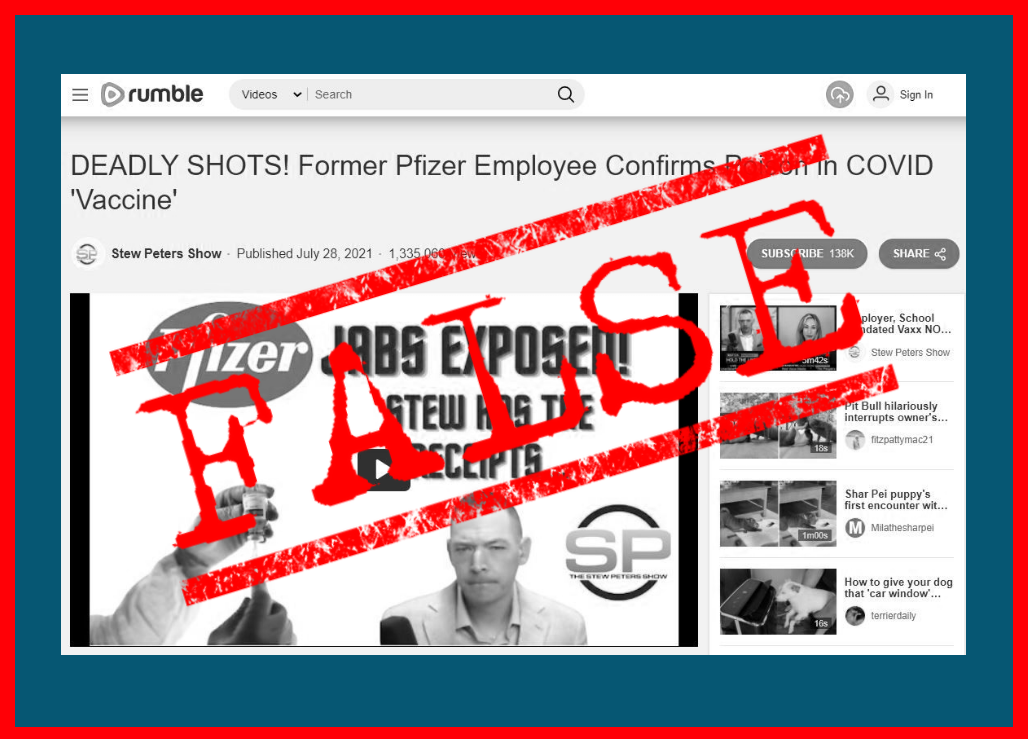A Facebook (FB) user posted that the United States Food and Drug Administration (U.S. FDA) forced pharmaceutical companies to update their Coronavirus (COVID-19) vaccine warnings to include heart damage risk. This needs context.
A reader sent a request to VERA Files’ Messenger Misinformation Tipline to verify a May 26 FB post that read:
“PFIZER & MODERNA FORCED TO ADMIT HEART DAMAGE RISK
The FDA has just ordered updated warning labels for the COVID mRNA vaccines — confirming the link to myocarditis and pericarditis.”
The U.S. FDA indeed ordered manufacturers Pfizer and Moderna to update their COVID-19 vaccine warnings to include heart damage risk. However, the warning refers only to increased risk and not guaranteed damage. The adverse effects were observed in some men aged 12 to 24, not in all recipients of the vaccine.
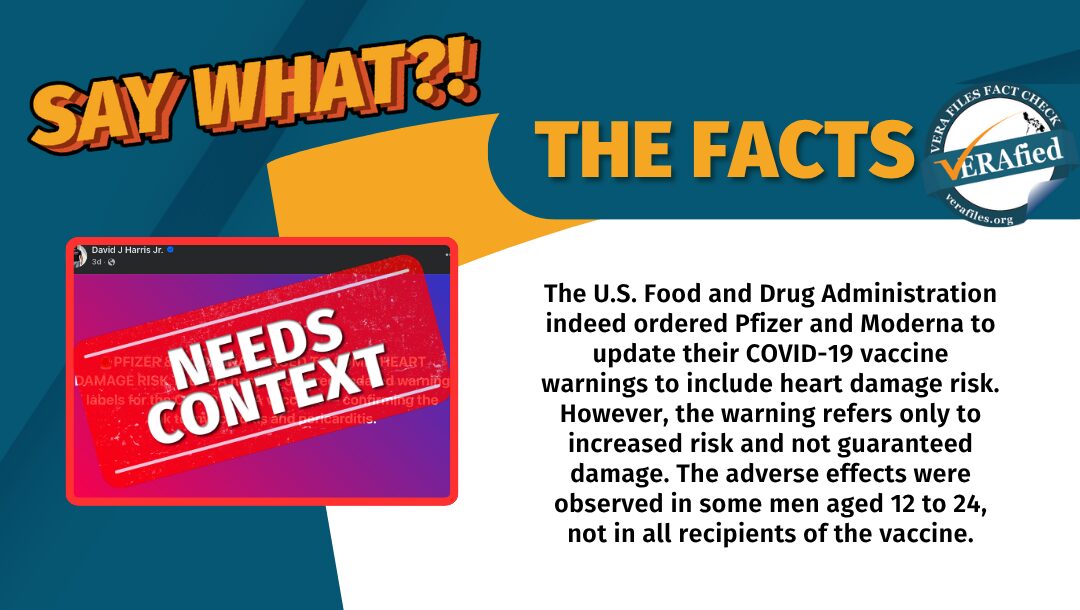
The U.S. FDA on April 17 ordered Moderna and BioNTech, Pfizer’s vaccine partner, to update their COVID-19 vaccine warnings.
In its letters, the U.S. FDA cited several studies from 2023 to 2024 where some male patients experienced myocarditis (inflammation of the heart muscle) and pericarditis (inflammation of the lining around the heart) within a week of receiving their second dose of the vaccine.
For the Moderna vaccine, these risks were observed in men aged 18 to 24. The BioNTech vaccine saw these adverse reactions in male recipients aged 12 to 17. For both vaccines, these heart inflammations occurred in approximately 38 cases per million.
The U.S. FDA advised the two manufacturers to update their warnings against increased risk of heart damage in men aged 16 to 25.
An October 2024 study funded by the U.S. FDA saw “improvement over time in most people” who experienced these vaccine-related heart injuries. “Studies are underway to find out if there are long-term heart effects in people who have had myocarditis after receiving an mRNA COVID-19 vaccine,” the study said in part.
The post circulated among American FB users but was shared by some Filipino accounts in light of reports of a new COVID-19 variant. COVID-19 variant NB.1.8.1 was first detected in Singapore in March. The World Health Organization reported a low risk associated with the variant and a moderate rate of spread, but other effects are still subject to further study.
The post was uploaded by influencer David J Harris Jr. and has so far garnered over 41,000 reactions, 9,900 comments and 28,000 shares.


